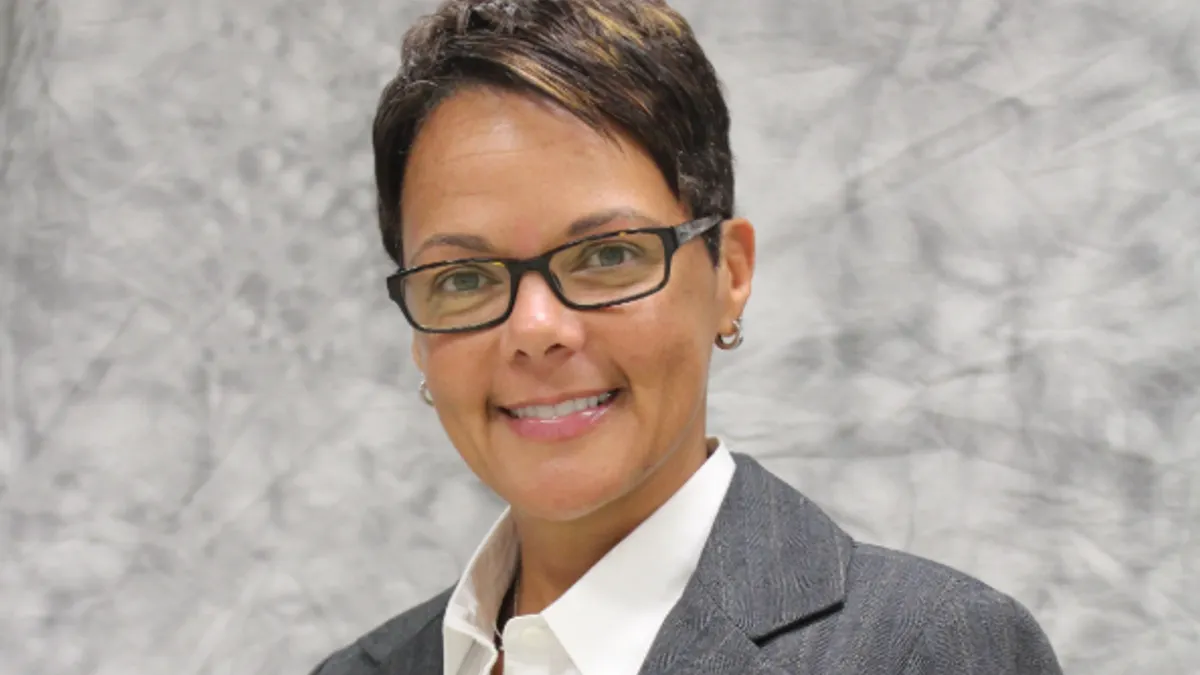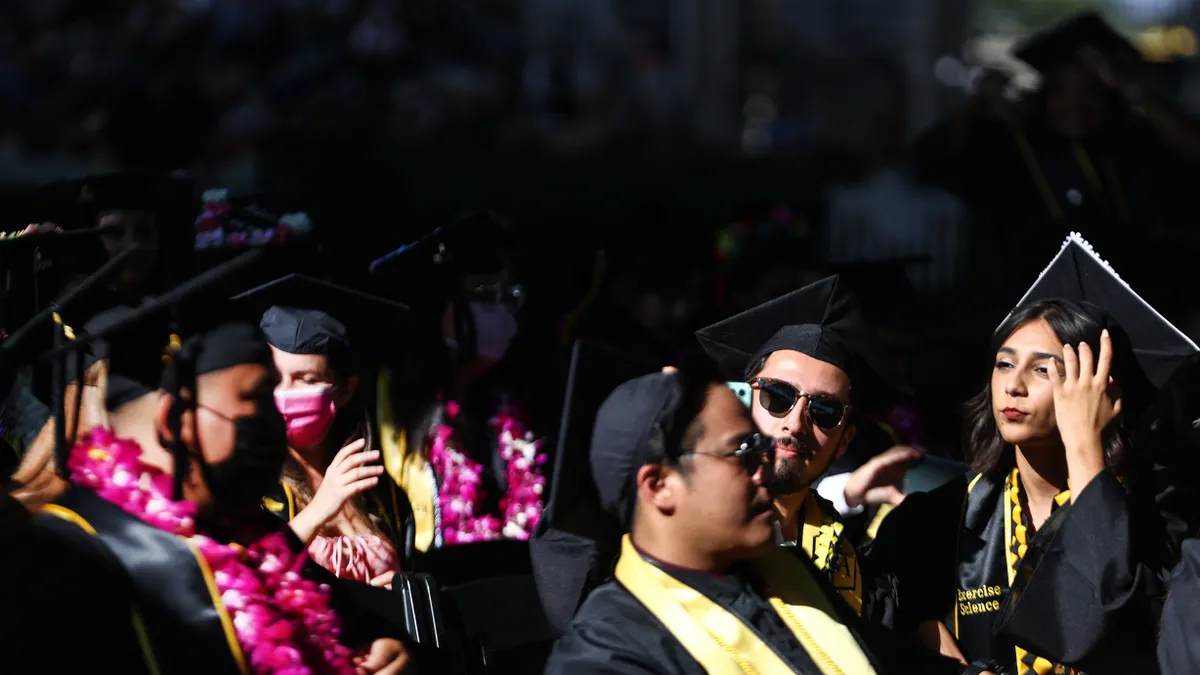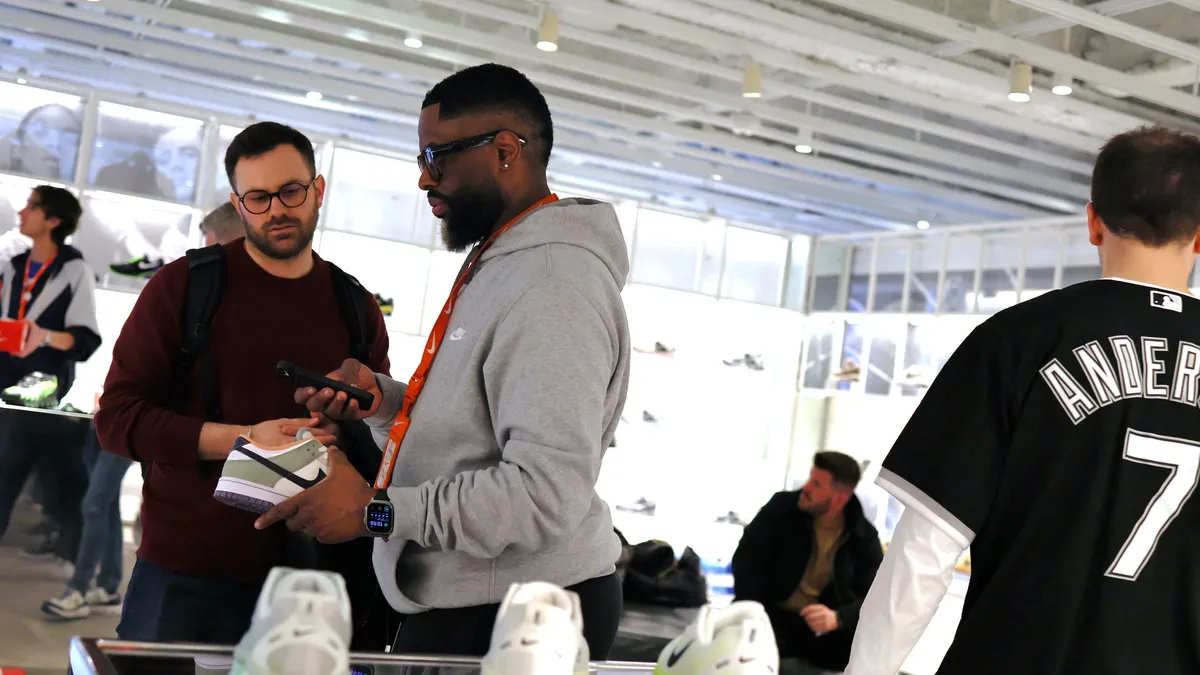Growing up within miles of the Honda of America Mfg. Inc. (HAM) auto plant in Marysville, Ohio, Yvette Hunsicker would hear community members talk about good job opportunities at the company. But little did she know she would begin her more than 30-year career with the company on the auto plant floor and eventually become vice president of human resources and the office of inclusion and diversity at Honda North America, Inc.
Hunsicker didn't think about pursuing a job at Honda until she returned home for financial reasons after completing her first year at Bowling Green State University, she told HR Dive. "As any young person or professional that was looking for a great job to put themselves through school, Honda was at the top of my list," Hunsicker said.
If you're not in a position to let that diverse perspective enter into the organization [...] then you're never going to achieve long-term success.

Yvette Hunsicker
VP of HR and the office of inclusion and diversity at Honda North America, Inc.
She applied for a manufacturing position not really knowing what the job would entail, she said. Hunsicker's resume included her experience working at a local government agency while in high school. At the interview, she said the HR professional was surprised she applied for a manufacturing position and asked about her aspirations.
"I might want to do what you're doing," Hunsicker said she told the interviewer, "Why don't you tell me a little about your job?" She was hired and started her tenure at HAM in 1989 as a production associate in the Marysville plant welding department. Years later, she would talk to the same interviewer, bringing those early ambitions into reality.
Candid conversations
Women have been traditionally underrepresented in the U.S. auto manufacturing workforce. Hunsicker was an African American woman in a predominantly white and male field in the early 1990s, but she said she didn't focus on differences.
"I never entered Honda thinking 'You're an African American female,'" Hunsicker said. "[But] I recognize that more so now, only because of the success I've had. I want to inspire others who look like me.”
Hunsicker said that over the years, if she felt someone was treating her differently, she would confront the person, questioning the behavior. "What does that mean?" Hunsicker said she'd sometimes respond. "Yeah, I'm a woman. Yeah, I'm black. Am I the first black person you've ever seen?" She continued, "I never left it to anyone to label me as anything other than my name or my title in this organization. My performance always aligned with that."
She engaged in conversations with her peers about her background and culture not because they were being negative, but because they were curious, Hunsicker said. She also said it was an opportunity for them to get to know each other. Her co-workers quickly learned she liked to ask a lot of questions, too, she said. "I've long been known to be inquisitive, which is the proper term," Hunsicker said. "But some of the folks on the floor would say, 'Yep, she's nosey.'" She added, with laughter, "That's just me." And in the process, she said, she "acquired a wealth of broad knowledge of the organization, on a very organic level, from manufacturing."
'There were people who saw the potential in me'
Hunsicker continued to pursue her college degree while working in production in various locations, taking the first shift so she could take college classes at night. "I asked a lot of questions and had the opportunity to express interest in associate relation jobs," she said.
But during that time, formal mentoring programs in the workplace weren't as common as they are today, Hunsicker said. "I am an African American female, so there weren't a lot of people who looked like me in the organization doing the things that I was doing," she explained. "But, I have had several informal mentors along the way, and it was usually a conversation that I initiated.”
"There were people who saw the potential in me," she said. "And that's why I believe I was given so much opportunity within the organization."
Eventually, the HR representative who first interviewed her reached out. After a conversation about her goals, she was offered a position in associate relations, she said. Hunsicker joined the human resources team in 1994 in the Marysville auto plant where she began her career.
A lesson in inclusion
In 1999, she accepted a position in Japan working in expatriate administration. A mother of two, Hunsicker brought along her youngest child to experience life in a different country. Her five-year-old son was enrolled in yochien, a Japanese preschool and kindergarten.
Being a single mom in Japan, "I couldn't work really long hours because I had a responsibility for my child," Hunsicker said. Noting that her work was "always done well and on time," she said Honda was very supportive. "If there was a group outing at the office, they would schedule it in a restaurant knowing I would bring my son, and that meant so much to me," Hunsicker said.
By the time he was ready for first grade, Hunsicker founded The Buckeye Tutorial, an international program to support the educational needs of Honda expatriate children in Japan in grades K-12. "I wanted to be sure families could be confident that when their child returned to the United States their academic performance was consistent with the U.S. education system," she said.
Executive leadership
Working abroad taught Hunsicker about Honda's global approach to business, and, personally, she experienced self development, she said. Her career journey would eventually lead to the position of assistant vice president of the office of inclusion and diversity at Honda North America, Inc. in 2017. And two years later, she assumed the additional responsibility of leading the human resources division.
Hunsicker, who serves on several boards including the National Diversity Council board of directors, said bringing inclusion and diversity into a company drives innovation. "If you're not in a position to let that diverse perspective enter into the organization, and you're not innovative, and you're not inclusive, then you're never going to achieve long-term success," she said. Honda was named a noteworthy company for diversity in 2019 and, according to Hunsicker, best practices in inclusion are embedded in its business model.
"It's going on 31 years that I've been here, and people say 'Wow, that is a long time,'" she said. "And some people have asked 'Did you ever think about leaving?' And I have to honestly say that has never crossed my mind. I've never needed to leave."





















